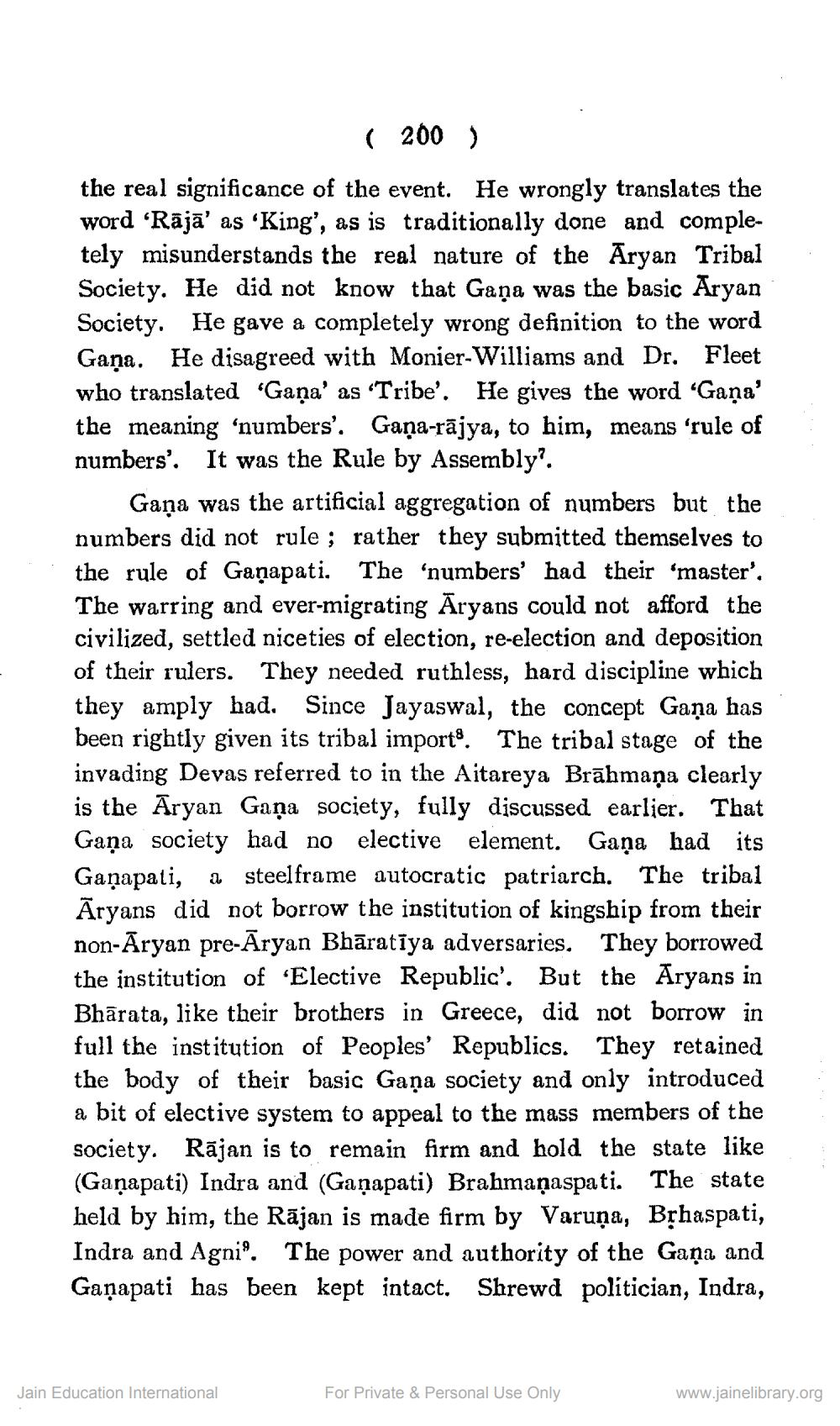________________
( 200 )
the real significance of the event. He wrongly translates the word 'Rājā' as 'King', as is traditionally done and completely misunderstands the real nature of the Aryan Tribal Society. He did not know that Gana was the basic Aryan Society. He gave a completely wrong definition to the word Gana. He disagreed with Monier-Williams and Dr. Fleet who translated 'Gana' as 'Tribe'. He gives the word 'Gana' the meaning 'numbers'. Gaṇa-rajya, to him, means 'rule of numbers'. It was the Rule by Assembly'.
Gana was the artificial aggregation of numbers but the numbers did not rule; rather they submitted themselves to the rule of Ganapati. The 'numbers' had their 'master'. The warring and ever-migrating Aryans could not afford the civilized, settled niceties of election, re-election and deposition of their rulers. They needed ruthless, hard discipline which they amply had. Since Jayaswal, the concept Gana has been rightly given its tribal imports. The tribal stage of the invading Devas referred to in the Aitareya Brāhmaṇa clearly is the Aryan Gana society, fully discussed earlier. That Gana society had no elective element. Gana had its Ganapati, a steel frame autocratic patriarch. The tribal Aryans did not borrow the institution of kingship from their non-Aryan pre-Aryan Bhāratīya adversaries. They borrowed the institution of 'Elective Republic'. But the Aryans in Bharata, like their brothers in Greece, did not borrow in full the institution of Peoples' Republics. They retained the body of their basic Gana society and only introduced a bit of elective system to appeal to the mass members of the society. Rajan is to remain firm and hold the state like (Ganapati) Indra and (Ganapati) Brahmanaspati. The state held by him, the Rajan is made firm by Varuna, Bṛhaspati, Indra and Agni". The power and authority of the Gana and Ganapati has been kept intact. Shrewd politician, Indra,
Jain Education International
For Private & Personal Use Only
www.jainelibrary.org




